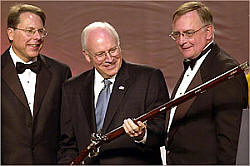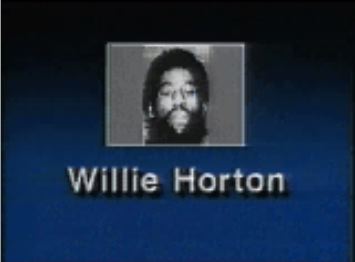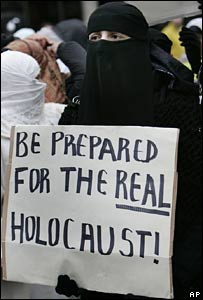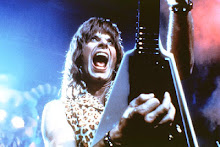
After much tooth-pulling by dogged reporters and several different versions from White House Press Secretary Scott McClellan, here is what we now know about Dick Cheney's hunting accident at a Texas ranch, where he shot Texas lawyer Harry Whittington:
1. Cheney did not have a proper hunting license.
2. Even though Cheney had an entourage of vans, he did not accompany Whittington to the hospital, where it would have been obvious if he had been drinking. Instead Cheney returned to the ranch and had a cocktail with dinner.
3. Cheney never got on the phone with President Bush to tell him what had happened. Likewise, Bush never got on the phone with Cheney to tell him to get out there right away and explain to the public what had happened.
4. Officers from the sheriff's department did not come to the ranch to question anyone about the shooting until the next morning.
5. Ranch owner Katherine Armstrong was designated to inform the public about the incident, by telling a local newspaper. Armstrong waited until Sunday morning to do so, after the Sunday television news shows (which would have made the story the centerpiece of their broadcasts) had taped. Armstrong claimed that no one in the hunting party had consumed any alcohol on the day of the hunt.
6. Scott McClellan was not informed about the shooting until Sunday morning. McClellan did not brief reporters about it until Monday. When McClellan did so, he blamed Whittington, stated that no one had been drinking that day, and joked about the shooting.
7. On Tuesday morning, Whittington suffered a heart attack due to one of the pellets having lodged in or near his heart. McClellan was informed but did not mention this several hours later during his daily press briefing.
8. While the headlines and the questions grew, Cheney remained silent until Wednesday evening, when he finally took responsibility for the accident and said that he had drank "a beer" during lunch on Saturday.
At best, the handling of the news of the incident by Cheney's and the White House staff was highly unusual and did not follow White House protocol. Cheney's supporters claim that the subsequent press coverage of the accident has been overblown, due to political animosity by the media toward the man. These supporters also say that the White House press corps was agitated about the way the incident was publicized because Cheney had the Katharine Armstrong inform the Corpus Christi Caller-Times about it, instead of a major paper. A better reason why the story has made big headlines for five days is because it feeds existing stereotypes about Cheney that he has created: those of a man who rules, and who is part of an Administration that lives, by dishonesty, secrecy, cronyism and incompetence.
Dishonesty -- there are many examples of the Vice President's dishonesty. Here are two: (1) Cheney speaking at the VFW 103rd annual National Convention, Aug. 26, 2002: "Simply stated, there is no doubt that Saddam Hussein now has weapons of mass destruction. There is no doubt he is amassing them to use against our friends, against our allies, and against us." (2) Interview with Tim Russert, NBC, Meet the Press, Dec. 9, 2001 : CHENEY: "Well, what we now have that's developed since you and I last talked, Tim, of course, was that report that's been pretty well confirmed, that he [9/11 terrorist Mohammed Atta] did go to Prague and he did meet with a senior official of the Iraqi intelligence service in Czechoslovakia last April, several months before the attack." Interview with Gloria Borger, CNBC, June 17, 2004: Borger: 'Well, let's go to Mohamed Atta for a minute, because you mentioned him as well. You have said in the past that it was, quote, 'pretty well confirmed.' ' Cheney: 'No, I never said that.' Borger: 'Okay.' Cheney: 'Never said that.' Borger: 'I think that is . . . ' Cheney: 'Absolutely not."
Secrecy -- saying that Cheney is secretive is like saying that Lara Flynn Boyle is dieting. From the early days of his "undisclosed location" whereabouts, to his refusal to name the participants in his Energy Task Force, to his failure to face serious questioning by the media more than about once a year (his recent interview with lapdog Brit Hume of Fox News hardly counts as serious questioning), Cheney has been especially reticent to answer to the American people for anything. He seems to ignore the fact that he is the Vice President of the United States, a public official whose salary is paid for by the American taxpayers and whose actions affect all Americans. Such secrecy naturally breeds suspicion, especially when combined with ...
Cronyism -- Cheney received very special treatment by the friendly sheriff's office in the friendly state of Texas after the accident. He was not questioned by authorities until the next morning. He was never given a breathalyzer test. He never had his weapon taken away. This privileged treatment reminds some Americans of the multi-billion dollar no-bid Iraq contracts given to Halliburton, a company that Cheney recently ran and with which he still has a financial relationship. Halliburton was found to have grossly overcharged the government -- meaning we, the American taxpayers -- for the work done under these contracts. It reminds some people of his last famous hunting trip, the one with Supreme Court Justice Antonin Scalia in January 2003, just three weeks after the Supreme Court agreed to take up Cheney's appeal in lawsuits seeking to force him to turn over documents disclosing details of his secret energy task force (see secrecy above). That hunting trip took place at a Louisiana camp owned by oilman Wallace Carline. The most recent hunting trip took place at a Texas ranch owned by Armstrong, a major Bush fundraiser and registered lobbyist for Parsons Technology, which was awarded billions of dollars worth of Iraq contracts. It's enough to make one think Bush and Cheney are running the country as an exclusive club, and that Cheney is the chief bagman in the center of it all, rewarding his cronies with giant tax cuts and giant contracts in Iraq while the underprivileged send their sons and daughters there to die, or to have their limbs blown off, or to do same to over one hundred thousand Iraqis.
Incompetence -- one reason why Cheney's hunting accident and subsequent PR blunder has resonated with the American people (according to MSNBC's online poll 2/16-17, respondents care about the incident by a margin of 72% to 28%) may be that Cheney's literal inability to shoot straight here is reminiscent of his, and the Administration's, figurative inability to do so in Iraq. For example, Cheney made the now-infamous statement on CNN's Larry King live eight months ago that "I think they're in the last throes, if you will, of the insurgency." That follows his statement in March 2003 that "My belief is we will, in fact, be greeted as liberators." Of course, both of these statements have been drowned out by the harsh facts on the ground in Iraq: too few troops; not enough body armor or armor for their Humvees to protect them; 2274 U.S. soldiers dead; over 16,000 wounded; a fierce insurgency greeting us as anything but liberators after President Bush donned a flight suit and pranced around under a giant banner declaring "Mission Accomplished;" thousands of terrorists where previously there were none; and instead of victory, at best a quaqmire and at worst a civil war that will lead to a fundamentalist Islamic state in place of a secular one. In the hunting accident, as in Iraq, Cheney went in without the proper license, an innocent person was shot, and Cheney refused to level with the American people in a timely way about what had occured. Likewise, incompetence is the word that comes to mind in the aftermath of Hurricane Katrina, where thousands of FEMA trailers costing the taxpayers hundreds of millions of dollars, which were supposed to be brought into Louisiana to house homeless hurricane victims, instead sit unused on a farm in Hope, Ark., while the hurricane victims are being evicted from hotels.
So, if the White House press corps, and the American people, are asking some tough questions about Cheney's actions before, during and after his hunting accident, it may well be more a case of blowback than of payback. And that is why Cheney's hunting accident will become his Chappaquiddick, the episode for which he will always be known, criticized and ridiculed.
Read more!







